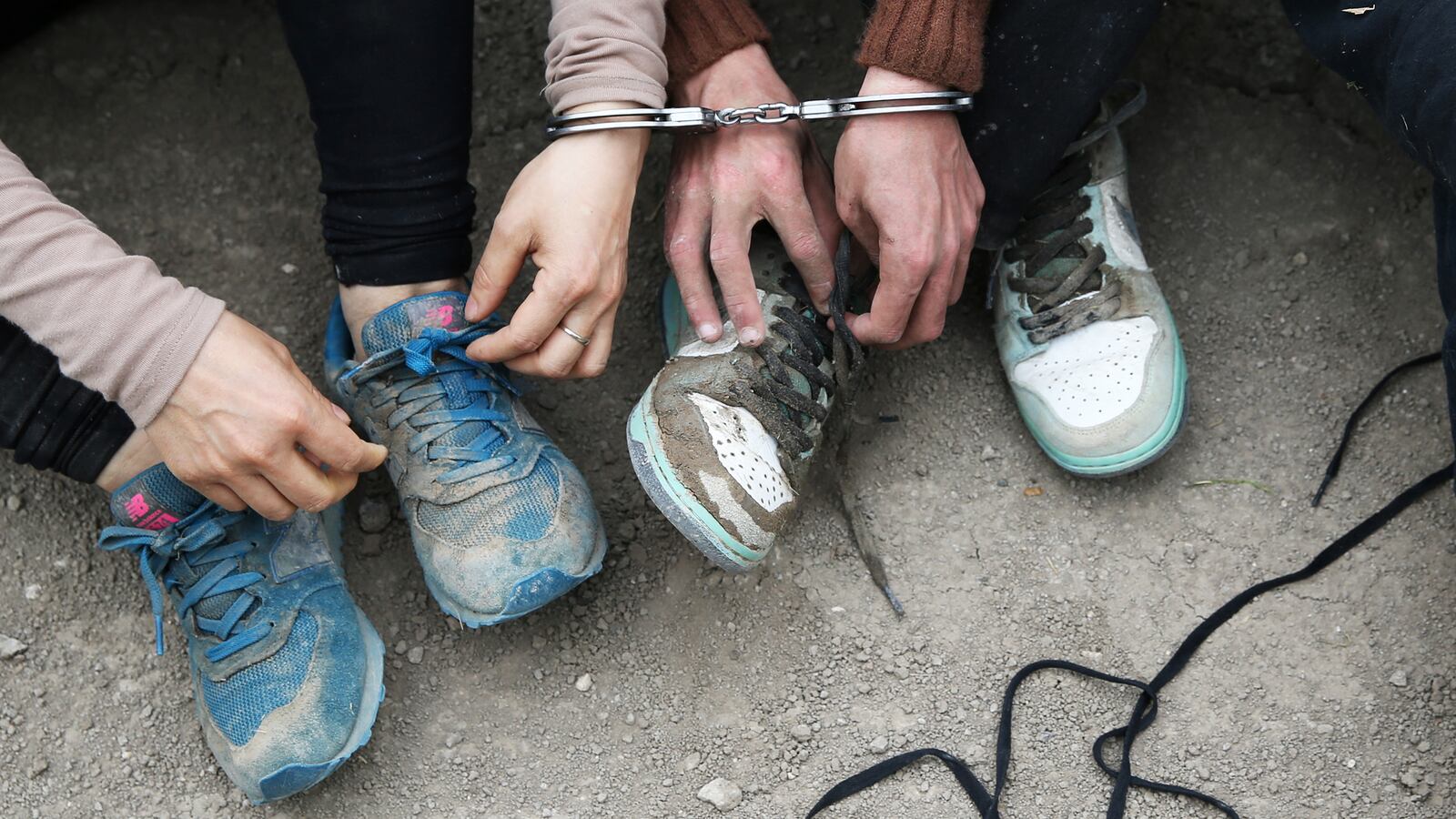HOUSTON—Maria and her 12-year-old daughter surrendered to Customs and Border Protection agents immediately after crossing the Rio Grande on a raft near McAllen, Texas, in the first week of June. It was the final step of their journey from Guatemala, where both of them had been subjected to years of physical abuse by Maria’s husband. They wanted asylum in the United States.
Because Maria had committed a misdemeanor offense by crossing the border, she and her daughter were sent to a processing center where a CBP officer allegedly gave Maria a stark choice. (Maria is a pseudonym to protect her identity.) If she gave up her asylum claim and returned to Guatemala, she and her daughter would remain together. If she applied for asylum, on the other hand, Maria would be thrown in jail for a year and her daughter would be put up for adoption. Maria would never see her daughter again.
Maria recounted this story last week to Edgar Saldivar, a senior staff attorney for the ACLU of Texas.
“She was very distraught,” Saldivar told The Daily Beast on Tuesday. “Her mind was a bit scattered, but after spending quite a bit of time talking with her, she regained her composure and talked to me.”
Her story of being threatened with the forced adoption of her daughter shocked Saldivar.
“We’ve heard of the history of CBP officers using lies and misinformation to pressure people into signing voluntary departures,” he said. “But in this specific context, where they’re threatening to take a child away and adopting them out to an American family, that was something I had not heard before.”
A CBP representative declined to comment on Maria’s allegations, citing pending litigation over the family separations. Under Texas law, a child may only be put up for adoption if the biological parents consent to the adoption or a judge terminates their parental rights.
Last week, President Donald Trump signed an executive order purportedly ending family separations at the border, but it came too late for Maria’s daughter and more than 2,000 other children who had already been taken from their parents under the administration’s “zero tolerance” policy. Some parents have reportedly been told by CBP they’ll be reunited with their children only if they agree to sign a voluntary deportation order, but Maria’s is the first reported case in which a parent has been threatened with having her child adopted.
Saldivar, a career trial lawyer who worked on catastrophic injury cases before moving into civil rights litigation, said he’s never seen clients as traumatized as the immigrant parents like Maria who have been separated from their children.
“The parents are strong people, having made the journey from their home country to the border,” he said. “But as soon as you start asking about their kids, they break down. They are in agonizing pain.”
Ultimately, Maria decided that defying the CBP was less frightening than the prospect of returning to her abusive husband in Guatemala. Her daughter was taken away and Maria was moved to a federal detention facility in South Texas operated by the private prison company CoreCivic. She still doesn’t know where her daughter is, Saldivar said, and the ACLU is currently attempting to locate her.
Maria’s asylum claim seems unlikely to be granted though. On June 11, Attorney General Jeff Sessions issued a ruling making it all but impossible to claim asylum on the grounds of domestic abuse (PDF), arguing that the “mere fact that a country may have problems effectively policing certain crimes or that certain populations are more likely to be victims of crime, cannot itself establish an asylum claim.” The ruling overturned an Obama-era policy that allowed more women to claim credible fear of domestic abuse as a reason to be granted asylum.
Saldivar hopes to include Maria’s case in the class action lawsuit the ACLU filed in March against the Trump administration, challenging its practice of separating asylum-seeking parents and young children. Meanwhile, Maria remains in detention in South Texas without any idea where her 12-year-old daughter is, or whether she has been put up for adoption as was allegedly threatened.
“There’s a possibility this could be a very prolonged process,” Saldivar said.






